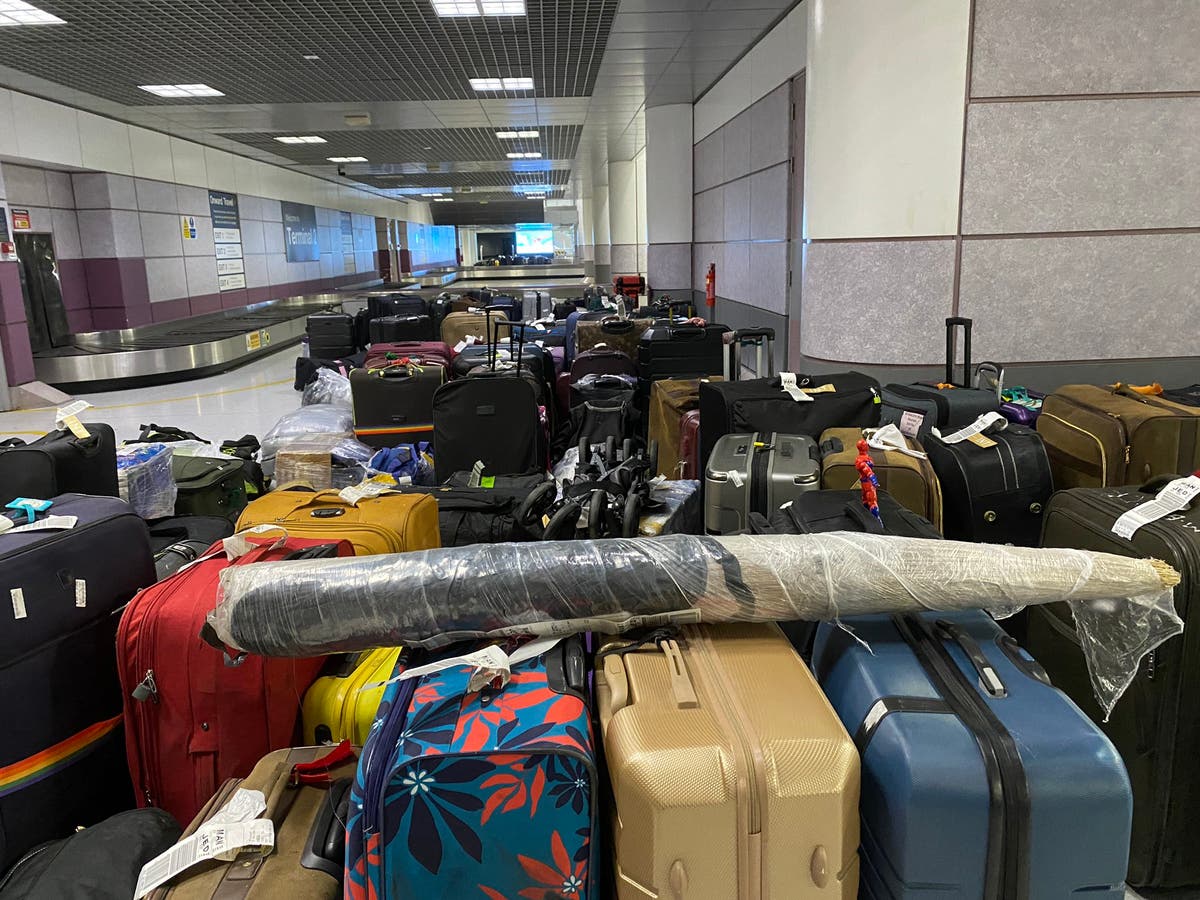We tried a 4-day work week for a month, here’s our honest opinion on the experience
We tested out what it's like having a 4-day work week for a month. Here are our honest opinions on the experience and tips to do it better.

Six months ago, we took four-day work weeks for the whole month of October 2021, and carried out this experiment while fully WFH.
It was an idea we had on the back burner for the longest time, as we were curious about this work perk that’s seemingly widely romanticised. I mean, who doesn’t want to enjoy a long weekend every week?
In fact, our boss has been pushing us to experience it ever since a Cyberjaya-based AI company announced that it was doing so.
Supposed benefits include better work-life balance, better mental health, increased productivity, more happiness … and the list goes on and on. But is the four-day work week really as good as it’s made out to be?
Our mission was to find out.
Expectations
We dreaded the thought of starting our four-day work week. Like, really, honestly dreaded it.
We were anxious about not finishing our work in time. We were nervous that some huge news would drop on one of our off-days and we’d lose out on joining the discussion, creating content, and hitting our KPIs.
We were also worried we’d get nothing out of this experience, and subsequently have no content or valuable insights to write a full review that readers would care about.
From the start, we were already anticipating to fail.
Attempting to fit five days of work into four also seemed like an impossible task. Each day already felt packed with a full list of tasks we were barely checking off.
We have to admit that we were in the midst of improving and refining our new content calendar too (which dictates our workflow), and didn’t have an ideal or the most optimised work schedule yet.
This made it all the more difficult to reassure ourselves that we were on track to accomplish our tasks in time to enjoy our off-day each week.
Realisation #1: When you need to condense five days of work into only four days, having a properly planned schedule greatly helps with time management.
As October approached, our fears only grew. It’s not to say that we weren’t excited at all. I think that excitement was in there somewhere, but buried pretty deep amidst the anxiety.
The game plan
 Brainstorming our strategies
Brainstorming our strategiesWe picked Fridays as our off-days since it felt like a nice segue into the usual weekend.
Only the editorial team was part of this experiment, and at the time, the team consisted of just me and Sade, the Managing Editor. The rest of our colleagues in other teams would continue working five days a week.
Some guidelines we set for our four-day work weeks were:
We shouldn’t do any major tasks (writing, events, publishing, editing, meetings, etc.) on Fridays, so those had to be settled by Thursday latest;Miscellaneous duties are still okay, such as quick replying to any time sensitive emails;We didn’t need to be active on our work chat, but should be on call for anything urgent that our colleagues needed our help with.Reality
October 1 started on a Friday itself, throwing us into the deep end, headfirst. Each week, prepping to have our Fridays off was intense.
For the four days of work we had, we would hustle throughout the usual working hours, pause for dinner and some rest, before resuming our tasks and doing it all over again the next day, and the next, and the next.
 On the late-night grind
On the late-night grindIt was a style of working we weren’t used to.
I’d say I was personally working up until 11PM from Mondays to Thursdays, while Sade preferred to wake up earlier than usual to get her tasks done.
The new routine was tiring, but what kept us going was the assurance of our long weekend.
Realisation #2: When necessary, you have to be willing to sacrifice extra time on your working days in order to clear out your schedule for your off-day. This could mean staying up later or waking up earlier to get tasks done.
Having a long weekend was a nice perk. We could sleep in and run errands that would usually be pushed to Saturdays or Sundays.
 I was able to visit the hospital to collect my meds without needing to apply for a leave (hospital waiting times are no joke)
I was able to visit the hospital to collect my meds without needing to apply for a leave (hospital waiting times are no joke)However, we quickly realised that the only other person we could actually hang out with for fun were each other (since all our other friends were at their day jobs).
Though we’re friends outside of work, we’re still colleagues. So what came to mind to fill up our free time was to, well, do some work.
Per our guidelines, no writing or major tasks was done, but we used our free time to review certain services and products together.
Realisation #3: Getting used to just relaxing on your day off might take some time. You might even feel tempted to do some work, but there’s no hard rule that dictates you can’t or shouldn’t do work on your day off, anyway.
 Sade suddenly decided to learn the piano in 15 minutes on a Friday afternoon
Sade suddenly decided to learn the piano in 15 minutes on a Friday afternoonIn retrospect
Looking back on the experience, we’re quite proud of what we were able to accomplish. Sure, we didn’t have a clear and optimised working schedule, but we were still able to pull through and get our work done in time every week.
Realistically speaking though, continuing to work like that would have been impractical, and we would have needed a major schedule overhaul and better preparation in order to not stretch ourselves thin on the four work days.
 Pets make for good emotional support
Pets make for good emotional supportAt the end of the day, we managed to get five days of work done in four days. But at what cost?
It felt like we gave up a semblance of work-life balance during the four days of work, then indulged in it during the three-day weekend.
I personally didn’t mind the trade-off, as I found the longer weekend refreshing enough.
On the other hand, Sade didn’t think the four days of crunching were worth the extra day of rest, even if she liked the free time. With everyone else still working on Friday, she had a weird feeling of FOMOW (Fear Of Missing Out On Work).
What likely made it difficult to separate work and rest throughout the experiment, was that we were still fully WFH at the time. We could go out as normal since it wasn’t during MCO but many activities were limited due to the pandemic.
A responsible employee who isn’t used to this new work schedule may feel a sense of guilt for “slacking off” while messages in work chats and emails are still buzzing your phone.
The guilt was also carried forward to our other working colleagues.
Realisation #4: Our colleagues actually felt guilty when they had to PM us for any urgent matters, even though our guidelines made it clear that we would still be on call for anything that’s crucial on Fridays.
Having each member of the team take a different off-day would mitigate this, but because we’re already a small team in the first place, every single absence is still felt.
Perhaps if our team were larger, it’d be easier to cover for each other.
Or maybe it would actually be harder…? Since communication between more people could make things more complicated.
We clearly don’t have all the answers.
-//-
As much as I enjoyed the four-day work week, we as a team agreed that it’s an unsustainable routine in our line of work.
Being an online media publication, timeliness and relevance are crucial aspects of our work, and having one less day of work means we’re likely to miss out on covering important happenings if they so happen to fall on our off-day.
Just like remote working, a four-day work week might not be an ideal work arrangement for certain companies. It could be due to their size, their customer-facing nature (retail, customer service, etc.), or industry (like manufacturing), to name a few.
Federation of Malaysian Manufacturers president Tan Sri Soh Thian Lai spoke on the behalf of SMEs earlier this April, saying that many companies were not ready to adopt the four-day work week or cut working hours.
He added that such a decision would result in an increased cost of wages in the name of work flexibility. Any work performed beyond the four-day work week would be considered as overtime work, which employers would then have to provide appropriate remuneration for.
The results of this would be the customer likely shouldering the added costs, and the employees not benefiting from work-life balance anyway.
So, while remote and hybrid working are growing in acceptance in Malaysia, it seems like the majority of companies here still aren’t ready to take on the four-day work week.
Realisation #5: Maybe embracing a four-day work week doesn’t even have to be such a drastic change. Maybe teams could just adopt it as a monthly or bi-weekly work perk.
My personal takeaway from this entire experience is actually that maybe, just maybe, four-day work weeks aren’t the way forward.
Instead, flexibility at work presents a more realistic and doable concept that’s replicable across more companies and industries. It’s what many were already practising while WFH anyway.
Nowadays, I aim to get most of my week’s tasks out of the way from Mondays to Thursdays, so that I can treat my Fridays a bit more flexibly if needed.
Since our company has now returned to our office full time, perhaps we could attempt a four-day work week experiment again. Hint, hint, boss.
With the actual, physical separation between the workplace and home, we can separate work and rest better this way.
Plus, we could possibly have a more productive and efficient working style with everyone in the office (versus alone at home), thereby not having to rush our work at night just for the extra day off.
TL;DR
Here are our key takeaways for anyone interested in attempting a four-day work week:
When you need to condense five days of work into only four days, having a properly planned personal and team schedule is not a bonus, it’s absolutely compulsory. When necessary, you have to be willing to sacrifice extra time on your working days in order to clear out your schedule for your off-day.Getting used to just relaxing on your day off might take some time. You might even feel tempted to do some work, but there’s no hard rule that dictates you can’t or shouldn’t do work on your day off, anyway. It’s your off-day, do what makes you happy.In smaller teams where everyone plays a crucial role, it might be necessary to still be on call on your off-days. If not, the alternative is for each team member to have a different off-day, so there’s always someone covering the base at work.Embracing a four-day work week doesn’t even have to be such a sudden or drastic change. Maybe teams could just adopt it as a monthly or bi-weekly work perk.This working style or work benefit isn’t for everyone. Some people would appreciate it more, others may rather just stick to the normal five weekdays as long as they’re still able to have work-life balance. Read more workplace content we’ve written here.
 BigThink
BigThink 































